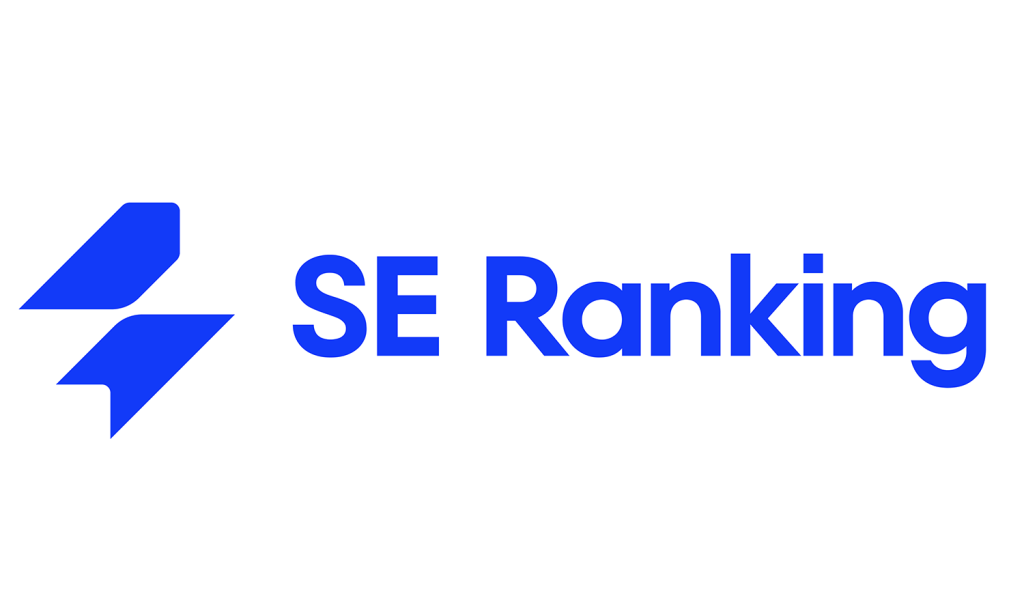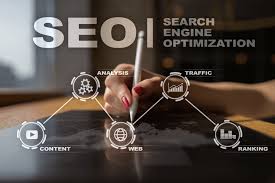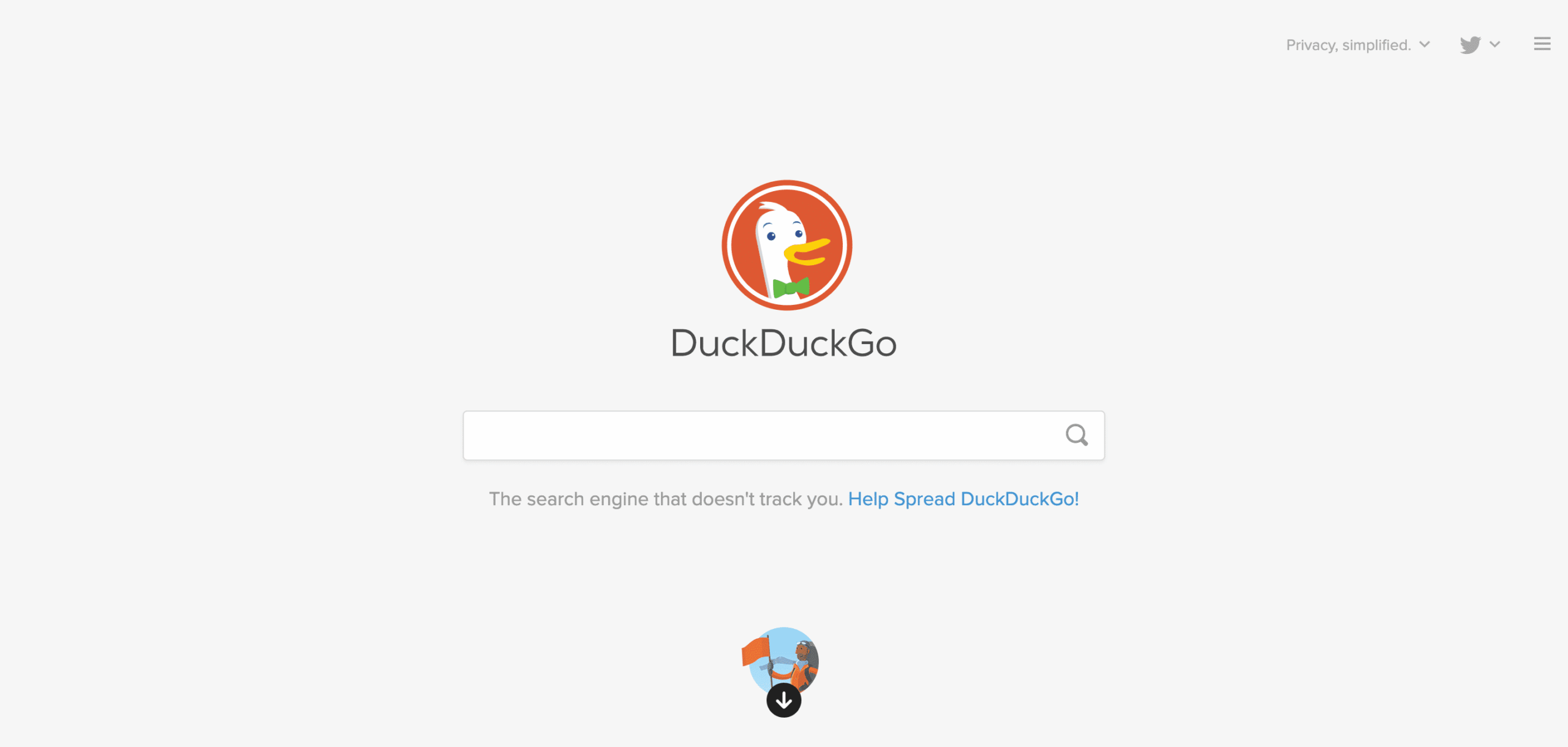The Importance of Website SEO Optimization
The Importance of Website SEO Optimization
Search Engine Optimization (SEO) is crucial for any website looking to increase its online visibility and attract more organic traffic. By optimising your website for search engines, you can improve your rankings in search results, drive more qualified visitors to your site, and ultimately boost conversions and revenue.
Key Benefits of Website SEO Optimization:
- Increased Visibility: By implementing SEO best practices, your website will rank higher in search engine results pages (SERPs), making it more likely to be seen by users searching for relevant keywords.
- Targeted Traffic: SEO helps attract quality traffic to your site from users who are actively searching for products or services related to your business. This means higher chances of converting visitors into customers.
- Improved User Experience: Optimising your website for SEO involves enhancing user experience by making the site faster, mobile-friendly, and easy to navigate. This leads to higher engagement and lower bounce rates.
- Builds Credibility and Trust: Websites that appear at the top of search results are often perceived as more trustworthy and credible by users. By ranking well in search engines, you can establish authority in your industry.
- Long-Term Results: Unlike paid advertising, the effects of SEO are long-lasting. Once you have a solid SEO foundation in place, you can continue to benefit from increased organic traffic over time without ongoing ad spend.
How to Implement Effective Website SEO Optimization:
To improve your website’s SEO performance, consider the following strategies:
- Keyword Research: Identify relevant keywords that align with your business offerings and target audience.
- On-Page Optimization: Optimise meta tags, headings, content, images, and internal links on each page of your website.
- Quality Content Creation: Publish high-quality, informative content that addresses user queries and provides value.
- Mobile-Friendly Design: Ensure your website is responsive and performs well on mobile devices for better user experience.
- Link Building: Acquire high-quality backlinks from reputable websites to improve your site’s authority and credibility.
In conclusion, investing in website SEO optimization is essential for businesses looking to enhance their online presence and reach a wider audience. By following best practices and staying up-to-date with the latest trends in SEO, you can position your website for success in the competitive digital landscape.
Top 20 FAQs on Optimising Website SEO Effectively
- How is website SEO done?
- What is SEO in a website?
- What is optimization in SEO?
- How do I optimize my website?
- How do I SEO optimize my website?
- What is SEO and how do you optimize it?
- What are the five steps to improve website SEO?
- How do you perform SEO on a website?
- How do I optimize SEO for my website?
- What is on site optimization SEO?
- How can I optimize the SEO of my website?
- How does SEO optimization work?
- What is website optimization in SEO?
- How can I optimize my SEO for free?
- What is SEO and how it works?
- What is website Optimisation in SEO?
- What are the 3 types of SEO?
- How do I make my website optimized for SEO?
- How can I optimize my website for SEO?
- What is the 80 20 rule for SEO?
How is website SEO done?
Optimising a website for search engines, known as SEO (Search Engine Optimization), involves a strategic approach to improve its visibility and ranking in search engine results pages. Website SEO is typically done through a combination of on-page and off-page techniques. On-page SEO focuses on optimising elements within the website itself, such as meta tags, headings, content, and internal links, to make it more relevant to search queries. Off-page SEO involves activities like link building and social media promotion to enhance the site’s authority and credibility. By implementing these strategies effectively and staying updated with search engine algorithms, businesses can improve their online presence and attract more organic traffic to their websites.
What is SEO in a website?
Search Engine Optimization (SEO) in a website refers to the process of improving various elements on a website to enhance its visibility and ranking in search engine results. SEO involves strategic techniques such as keyword research, on-page optimization, content creation, and link building to make a website more relevant and authoritative in the eyes of search engines like Google. By implementing SEO best practices, a website can attract more organic traffic, increase its chances of appearing higher in search results for relevant queries, and ultimately drive meaningful engagement and conversions. In essence, SEO is about making a website more search engine-friendly to improve its online presence and reach a wider audience effectively.
What is optimization in SEO?
Optimization in SEO refers to the process of making strategic improvements to a website to enhance its visibility and ranking on search engine results pages (SERPs). This involves various techniques such as keyword research, on-page optimization, content creation, and link building to align the website with search engine algorithms and user intent. By optimising elements like meta tags, headings, and site structure, businesses can improve their chances of being discovered by users searching for relevant information or products. Ultimately, SEO optimization aims to drive organic traffic to a website and increase its online presence for better engagement and conversions.
How do I optimize my website?
Optimising your website for search engines involves a series of strategic steps to improve its visibility and performance in search results. To optimise your website effectively, start by conducting thorough keyword research to identify relevant terms that your target audience is searching for. Implement on-page optimisation techniques such as optimising meta tags, headings, and content with these keywords. Ensure your website is user-friendly, mobile-responsive, and loads quickly to enhance user experience. Quality content creation and link building are also key components of website SEO optimisation. Regularly monitoring and analysing your site’s performance using tools like Google Analytics can help you track progress and make necessary adjustments to further enhance your SEO efforts.
How do I SEO optimize my website?
To SEO optimize your website effectively, start by conducting thorough keyword research to identify relevant terms your target audience is searching for. Implement these keywords strategically in your website’s meta tags, headings, content, and image alt text. Ensure your site’s structure is user-friendly and easy to navigate, with clear internal linking. Create high-quality, engaging content that addresses user queries and provides value. Optimise your website for mobile devices and focus on building a strong backlink profile from reputable sources. Regularly monitor and analyse your SEO performance to make necessary adjustments and stay ahead of the competition. By following these steps diligently, you can enhance your website’s visibility in search engine results and attract more organic traffic.
What is SEO and how do you optimize it?
Search Engine Optimization (SEO) is a fundamental digital marketing strategy aimed at improving a website’s visibility in search engine results pages (SERPs) organically. To optimize SEO effectively, businesses need to focus on various key aspects such as keyword research, on-page optimization, quality content creation, mobile responsiveness, and link building. By conducting thorough keyword research to target relevant search terms, implementing on-page optimization techniques like meta tags and internal linking, creating valuable content for users, ensuring mobile-friendly design for better user experience, and acquiring high-quality backlinks from reputable sources, businesses can enhance their website’s SEO performance and attract more organic traffic. Implementing these strategies collectively can help websites rank higher in search results and ultimately drive more qualified traffic to their site.
What are the five steps to improve website SEO?
Improving website SEO involves a strategic approach to enhance online visibility and attract more organic traffic. The five key steps to boost website SEO include conducting thorough keyword research to target relevant search terms, implementing on-page optimization by refining meta tags and content, focusing on creating high-quality and engaging content that resonates with the target audience, ensuring mobile-friendly design for better user experience, and building strong backlinks from reputable sources to improve site credibility and authority. By following these steps diligently, businesses can significantly enhance their search engine rankings and drive more qualified traffic to their websites.
Performing SEO on a website involves a strategic approach to improving its visibility and ranking on search engine results pages. To start, conducting thorough keyword research to identify relevant terms that users are searching for is essential. On-page optimization techniques, such as optimizing meta tags, headings, and content with targeted keywords, play a crucial role in signalling the relevance of the website to search engines. Additionally, creating high-quality content that addresses user intent and incorporates keywords naturally can enhance a site’s SEO performance. Off-page strategies like building quality backlinks from reputable sources also contribute to improving a website’s authority and credibility in the eyes of search engines. Regular monitoring, analysis of performance metrics, and staying informed about algorithm updates are key aspects of an effective SEO strategy for any website looking to increase organic traffic and achieve sustainable online success.
How do I optimize SEO for my website?
Optimizing SEO for your website involves a strategic approach to improve your online visibility and attract more organic traffic. To enhance your website’s SEO performance, start by conducting thorough keyword research to identify relevant terms that resonate with your target audience. Implement on-page optimization techniques, such as optimizing meta tags, headings, and content with targeted keywords. Focus on creating high-quality, engaging content that addresses user needs and provides value. Ensure your website is mobile-friendly and easy to navigate for a seamless user experience. Additionally, building quality backlinks from reputable sites can boost your site’s authority and credibility in the eyes of search engines. By following these best practices and staying informed about the ever-evolving landscape of SEO, you can effectively optimize your website for improved search engine rankings and increased organic traffic.
What is on site optimization SEO?
On-site optimization SEO, also known as on-page SEO, refers to the process of optimizing individual web pages to improve their search engine rankings and attract more organic traffic. This involves various techniques such as optimizing meta tags, headings, content, images, and internal links within a website to make them more relevant and user-friendly. By focusing on on-site optimization, website owners can enhance the visibility of their pages in search engine results pages (SERPs) and provide a better user experience for visitors. Implementing on-site SEO strategies is crucial for improving a website’s overall performance and increasing its chances of ranking higher in search engine results.
How can I optimize the SEO of my website?
To optimise the SEO of your website effectively, start by conducting thorough keyword research to identify relevant terms that your target audience is searching for. Implement these keywords strategically in your website’s meta tags, headings, content, and URLs. Focus on creating high-quality, engaging content that addresses user queries and provides value. Ensure your website is mobile-friendly and loads quickly to enhance user experience. Building quality backlinks from reputable sites can also boost your site’s authority in the eyes of search engines. Regularly monitor and analyse your website’s performance using tools like Google Analytics to make data-driven decisions for continuous improvement in SEO.
How does SEO optimization work?
SEO optimization works by implementing various strategies to improve a website’s visibility and ranking on search engine results pages (SERPs). This involves optimising both on-page elements, such as meta tags, headings, and content, as well as off-page factors like backlinks and social signals. By conducting keyword research to target relevant search terms, creating high-quality content that satisfies user intent, and ensuring technical aspects of the site are in order, SEO aims to make a website more accessible and appealing to search engines. Ultimately, SEO optimization is about enhancing the overall user experience and authority of a website to attract organic traffic and achieve higher rankings in search results.
What is website optimization in SEO?
Website optimization in SEO refers to the process of refining various elements of a website to improve its visibility and ranking in search engine results. This involves implementing strategies such as keyword research, on-page optimization, content creation, and technical enhancements to make the site more search engine-friendly. By focusing on website optimization in SEO, businesses can attract targeted traffic, enhance user experience, and ultimately drive better organic search performance. It is a fundamental aspect of digital marketing that aims to maximise a website’s potential for attracting quality visitors and achieving online success.
How can I optimize my SEO for free?
Optimizing your SEO for free can be achieved through various strategies that focus on improving your website’s visibility and relevance to search engines without incurring additional costs. Some effective ways to optimise your SEO for free include conducting thorough keyword research to target relevant terms, creating high-quality and engaging content that resonates with your audience, optimizing meta tags and descriptions for each webpage, improving website speed and mobile-friendliness, obtaining backlinks from reputable sources, and regularly monitoring and updating your site’s performance using tools like Google Analytics. By implementing these cost-effective tactics consistently, you can enhance your website’s organic search rankings and attract more valuable traffic without breaking the bank.
What is SEO and how it works?
SEO, short for Search Engine Optimization, is a fundamental digital marketing strategy aimed at improving a website’s visibility in search engine results. SEO works by optimising various elements of a website to make it more attractive to search engines like Google. This involves implementing relevant keywords, creating high-quality content, improving site speed and user experience, building quality backlinks, and adhering to search engine guidelines. By following SEO best practices, websites can climb the rankings in search results, attract more organic traffic, and ultimately increase their online presence and potential for conversions.
What is website Optimisation in SEO?
Website optimisation in SEO refers to the process of improving various elements of a website to enhance its visibility and performance in search engine results. This includes making strategic changes to on-page elements such as meta tags, headings, content, and images to align with relevant keywords and user intent. Additionally, website optimisation involves enhancing user experience by ensuring the site is fast, mobile-friendly, and easy to navigate. By focusing on both technical aspects and user-centric improvements, website optimisation plays a crucial role in boosting organic traffic, increasing rankings, and ultimately driving conversions for businesses online.
What are the 3 types of SEO?
When it comes to website SEO optimization, understanding the three main types of SEO is essential for implementing an effective strategy. The three types of SEO are on-page SEO, off-page SEO, and technical SEO. On-page SEO involves optimising individual web pages with relevant keywords, meta tags, and quality content to improve their search engine rankings. Off-page SEO focuses on building backlinks from reputable sites to enhance a website’s authority and credibility. Technical SEO deals with the backend aspects of a website, such as site speed, mobile-friendliness, and structured data markup, to ensure optimal performance in search results. By incorporating all three types of SEO into your digital marketing efforts, you can maximise your website’s visibility and attract more organic traffic.
How do I make my website optimized for SEO?
To make your website optimized for SEO, it is essential to follow a strategic approach that includes several key steps. Firstly, conducting thorough keyword research to identify relevant search terms that align with your content and target audience is crucial. Next, implementing on-page optimization techniques such as optimizing meta tags, headings, and content with these keywords can help improve your site’s visibility in search results. Additionally, creating high-quality and engaging content that addresses user queries and provides value is essential for attracting organic traffic. Ensuring that your website is mobile-friendly, fast-loading, and easy to navigate also plays a significant role in enhancing user experience and SEO performance. Lastly, building a strong backlink profile through reputable sources can further boost your site’s authority and credibility in the eyes of search engines. By incorporating these strategies into your SEO efforts, you can effectively make your website more optimized for search engine visibility and improved rankings.
How can I optimize my website for SEO?
To optimise your website for SEO, start by conducting thorough keyword research to identify relevant search terms that align with your business. Incorporate these keywords strategically into your website content, meta tags, and headings. Focus on creating high-quality, informative content that addresses user queries and provides value. Ensure your website is mobile-friendly and optimised for speed to enhance user experience. Implement on-page optimisation techniques such as meta descriptions, alt tags for images, and internal linking. Additionally, work on acquiring quality backlinks from reputable websites to boost your site’s authority in search engine rankings. By following these SEO best practices diligently, you can improve your website’s visibility and attract more organic traffic.
What is the 80 20 rule for SEO?
The 80/20 rule for SEO, also known as the Pareto Principle, suggests that roughly 80% of the results in search engine optimisation come from 20% of the efforts. In the context of website SEO optimization, this means that focusing on key factors that have the most significant impact on search rankings can yield substantial results. By prioritising tasks such as keyword research, content optimisation, and link building that contribute most to improving SEO performance, website owners can maximise their efforts and achieve better visibility in search engine results pages.









